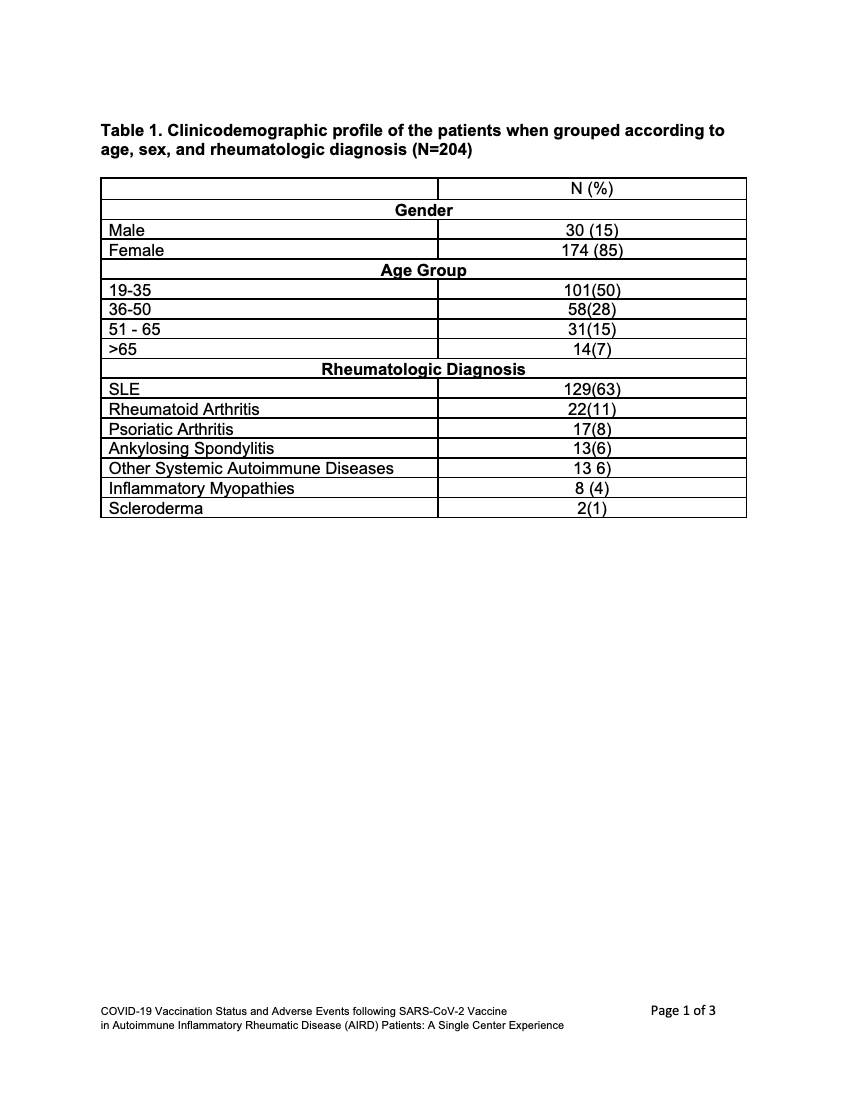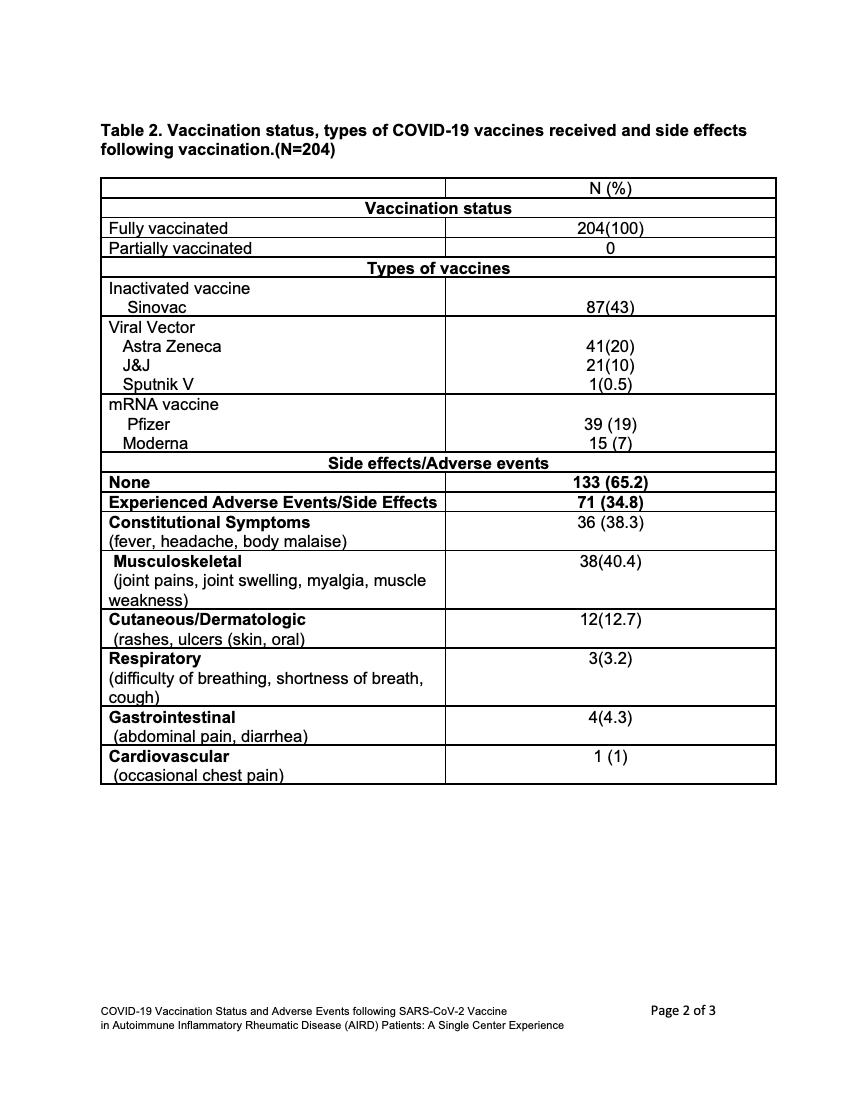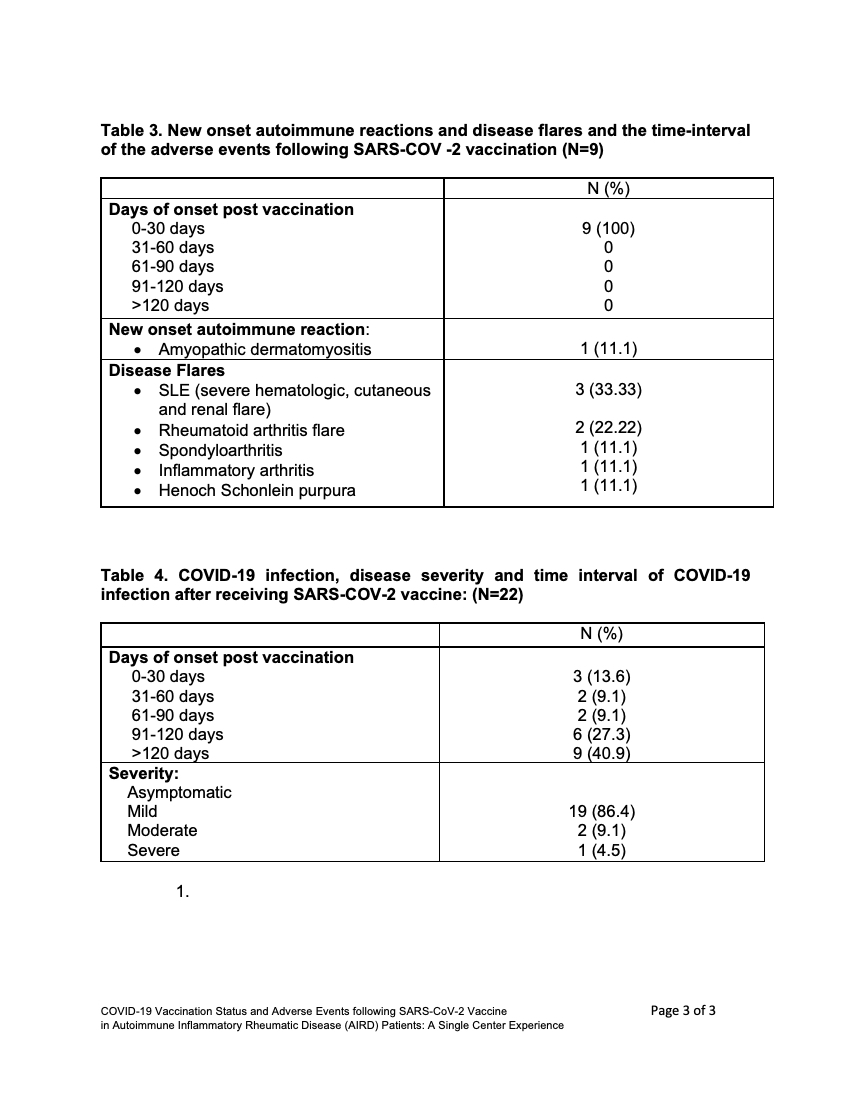Session Information
Date: Monday, November 13, 2023
Title: (1124–1154) Miscellaneous Rheumatic & Inflammatory Diseases Poster II
Session Type: Poster Session B
Session Time: 9:00AM-11:00AM
Background/Purpose: Autoimmune inflammatory rheumatic diseases (AIRD) were associated with an increased risk for COVID-19 infection, worse clinical outcomes, and COVID-19- related deaths. Vaccines carry the potential benefit of reducing disease transmission and disease severity. Issues on vaccine safety, trigger of an autoimmune reaction or disease flares has been a long issue. Thus this study describes the COVID-19 vaccination status and adverse events following SARS-COV 2 vaccine in a tertiary hospital in Manila, Philippines.
Methods: This retrospective cross-sectional study included patients diagnosed with AIRD and seen in the clinics over 12 months (March 2021-March 2022).We collected data from patients’ clinic records and analyzed the clinicodemographic profile, vaccination status, adverse events and development of new onset autoimmune reaction and disease flares post vaccination and those who developed COVID-19 infection even after vaccination.
Results: There were 204 respondents included in this study. Majority were female (85%). SLE, rheumatoid arthritis, psoriatic arthritis, ankylosing spondylitis were the common AIRD. The median age is 38.4 years. 100% of the respondents were fully vaccinated; 42.6% received inactivated vaccine, 30.8% viral vector vaccine and 26.4% mRNA vaccine. 65.2% reported no adverse events while 34.8% experienced constitutional, musculoskeletal, cutaneous, respiratory, gastrointestinal and cardiovascular symptoms after vaccination. There were 9 (4.4%) of the respondents who developed new onset autoimmune reaction and disease flares 7-28 days post vaccination; 1patient had new onset amyopathic dermatomyositis; 3SLE patients developed severe hematologic, cutaneous and renal flare; 2 rheumatoid arthritis, 1 spondyloarthritis, and 1 inflammatory patients in long remission had disease flares and 1 patient with henoch schonlein purpura developed flare. Twenty two of the respondents developed COVID-19 infection after 30-120 days post vaccination; of whom 86.4% developed mild symptoms, 9.1% moderate infection and 4.5% had severe infection. All of the patients recovered with no complications.
Conclusion: This study showed that patients with AIRD experienced varied organ system adverse events ranging from mild side effects to new onset autoimmune reactions and disease flares. Even after a complete vaccination, some patients still had COVID-19 infection, however preventing them from worse complications, hospitalization and death.
To cite this abstract in AMA style:
Luceño V, Daleon P, Navarra S. COVID-19 Vaccination Status and Adverse Events Following SARS-CoV-2 Vaccine in Autoimmune Inflammatory Rheumatic Disease (AIRD) Patients: A Single Center Experience [abstract]. Arthritis Rheumatol. 2023; 75 (suppl 9). https://acrabstracts.org/abstract/covid-19-vaccination-status-and-adverse-events-following-sars-cov-2-vaccine-in-autoimmune-inflammatory-rheumatic-disease-aird-patients-a-single-center-experience/. Accessed .« Back to ACR Convergence 2023
ACR Meeting Abstracts - https://acrabstracts.org/abstract/covid-19-vaccination-status-and-adverse-events-following-sars-cov-2-vaccine-in-autoimmune-inflammatory-rheumatic-disease-aird-patients-a-single-center-experience/



